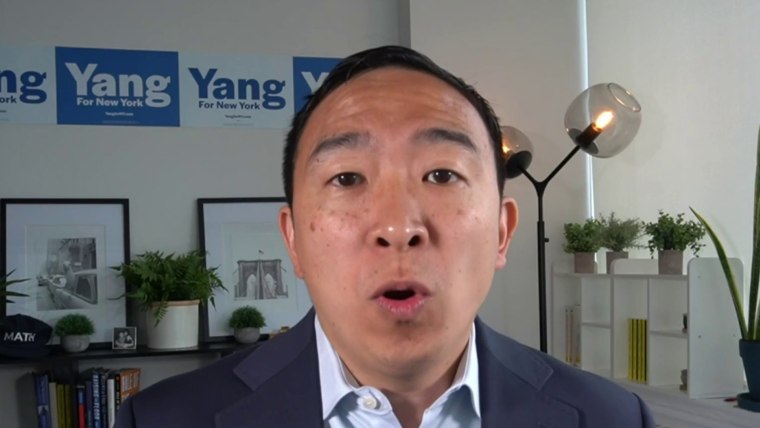“What really matters with elections is ‘substantive representation’ and the degree to which a candidate, regardless of race, understands and fights for policies that will benefit group members,” Wong said.
Sara Sadhwani, also a senior researcher at AAPI Data, said that “a crude count of individuals of a minority background being elected to office falls short of communities feeling represented.” While Yang has won endorsements from major leaders of Asian descent in New York and national politics, including Rep. Grace Meng, D-N.Y., he’s also been met with heavy opposition from the community, including roughly 800 progressive Asian Americans who signed a letter rejecting his bid.
“If Andrew Yang wants to represent the AAPI community, he will need to build trust and organize the community just like any other candidate,” Sadhwani said. “Sharing his immigrant story, listening and showing understanding for the needs the community faces, and most importantly, making good on any promises that are made to the community — this is all part of responsive representation.”
But when asked about any work in the Asian American community that predated his mayoral campaign, Yang responded by rattling off the names of politicians he knew or who had endorsed him.
“I certainly had relationships before this race, but I didn't know everyone. And certainly I've gotten to know a lot of people I didn't know before running for mayor. I was friendly with [state Sen.] John Liu, who endorsed me. I was friendly with Grace Meng, who’s endorsed me. I didn't know [City Council member] Margaret Chin, for example ... so it was exciting getting to know her.”
Tran said that this is insufficient, and that connections with leadership in the city is only the first step.
“True engagement means not just with political leaders, not just formal Asian American organizations across the city which exist, but the actual people and voices and experiences behind these organizations and the Asian American communities,” he said. “That outreach, Andrew Yang has not fully done, and has not had prior deep connections with these different Asian American communities in the city.”
Engagement also means lifting up others so that Yang doesn’t remain the only Asian American in New York City politics, Tran said. Likewise, Jo-Ann Yoo, executive director of the NYC-based social services nonprofit Asian American Federation, said that deep commitment means ensuring there’s a long-term focus on Asian Americans, not just when they’re being targeted by a significant rise in hate crimes. It’s something she challenges all candidates to do.
“Has he worked in a community? Has he volunteered? Does he understand all of the nuanced stories? Has he worked with anybody to support immigration policies? There's plenty you can do to engage,” she said. “We're looking for long, sustained, permanent interaction that engages our community. It's not just campaigning for five minutes with sound bites.”
Given the complexity of the community, there is no unifying, monolithic stance among Asian Americans, making it impossible for him to represent them all, Yang claimed. His website includes targeted policies for other similarly diverse, marginalized groups, including Latinos and the LGBTQ community, but has no such specified platforms on Asian Americans. But Wong said while there are tensions between progressive and moderate members of the group over policing and other racial justice issues, like integrating specialized high schools, surveys reveal that the community does, in fact, converge around core issues like environmental protections, expanded health care and a strong government social safety net.
Experts emphasize that the pandemic had displayed elements of historical racism toward Asian Americans. But some do agree with Yang in that this period of anti-Asian hate is in some ways different. It’s an era marked by the catalyzation of activism, one that Tran says Yang is part of. With increased mobilization of Asian American groups, the candidate, while influential in his own way, will have to then confront this new generation through building meaningful relationships.
“What is different is that AAPIs are organizing to fight back against this new wave of hate, so they are more mobilized and are actively claiming their power, more than ever before,” Sadhwani said. “An organized community, however, will want more than pandering to ethnic appeals and instead will likely want to see action and candidates who make good on their promises.”
"lose" - Google News
June 10, 2021 at 02:23AM
https://ift.tt/3v6zAPO
Andrew Yang once said identity politics could 'lose elections.' He's changed his mind. - NBC News
"lose" - Google News
https://ift.tt/3fa3ADu https://ift.tt/2VWImBB
Bagikan Berita Ini















0 Response to "Andrew Yang once said identity politics could 'lose elections.' He's changed his mind. - NBC News"
Post a Comment